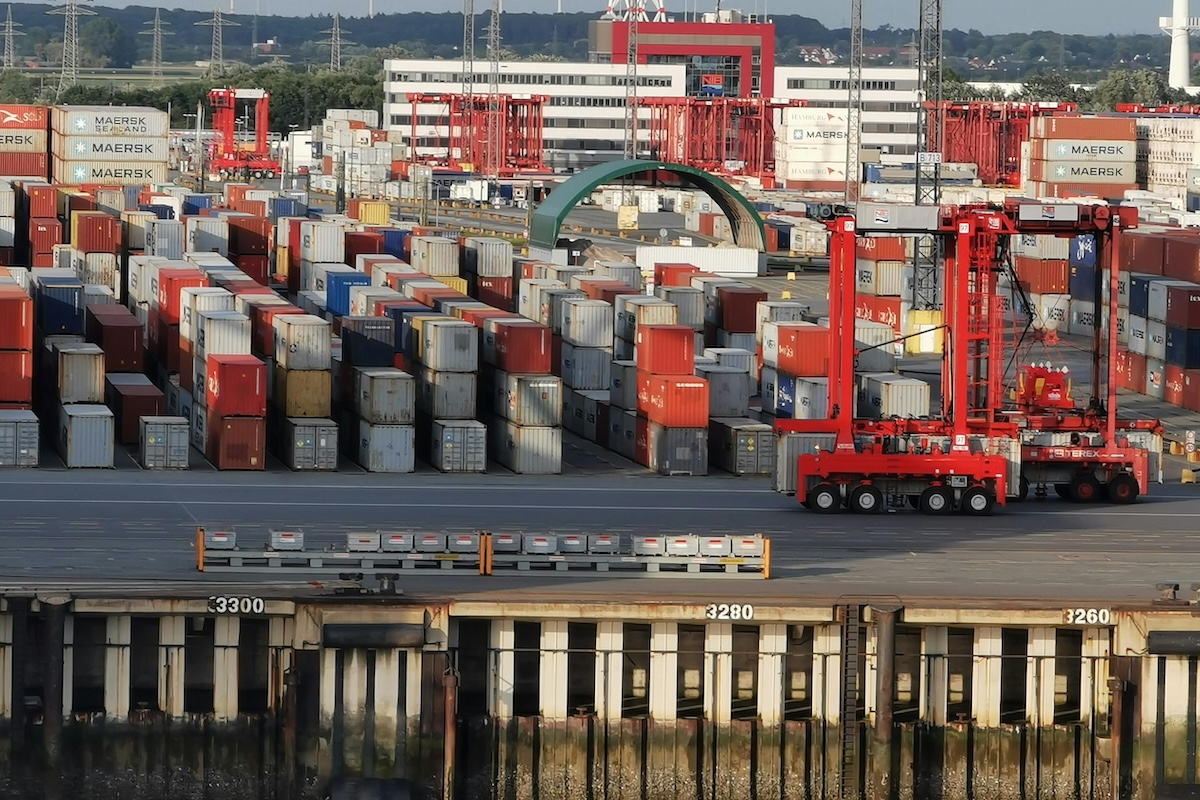What Is Export Control? A Guide to International Trade Compliance

Article Summary
Export controls are regulations that govern the export of sensitive goods, technology, and services to ensure compliance with international trade laws.
Export controls protect national security, prevent illegal trade, and ensure compliance with international agreements.
ITAR governs military-related exports, while EAR regulates dual-use items with both commercial and military applications.
Businesses can ensure compliance by implementing export compliance programs, conducting regular audits, and training employees.
Non-compliance can result in fines, loss of export privileges, reputational damage, and even criminal charges.
Training ensures employees understand export regulations, recognize red flags, and follow company compliance procedures.
Export controls create an international cooperation that regulates the export of sensitive physical items, software and technology to promote shared goals such as nonproliferation, human rights, and regional stability. Guided by multinational organizations, called regimes, each cooperating nation develops its own national system to contribute to, and coordinate with, the shared objectives. Another aspect of export control involves Sanctions, Embargoes, and Denied Parties which restrict trade in a different way, that is, screening to prevent trade with countries, companies, and individuals of concern.
International Context: Export Control Regimes
To coordinate their efforts and effectiveness when creating their respective national control lists, cooperating nations utilize the research and guidance of multilateral organizations that study specific areas of concern. These coordinating entities are called regimes and they each have a categorical focus:
- Australia Group (AG): Chemical & Biological Weapons
- Missile Technology Control Regime (MTCR): Weapons Delivery
- Nuclear Suppliers Group (NSG): Nuclear Related Concerns
- Wassenaar Arrangement (WA): Conventional Weapons
These multilateral export control regimes (MECRs) provide cooperating nations with unified technical guidance and lowered administrative loads. Even with these harmonized regimes, some countries choose to augment their control lists with unilateral classification categories, e.g., the USA with its 'xx99x' ECCN classifications in their Commerce Control List.
National Focus: U.S. Export Compliance Organizations
Each nation has its own method to organize its export control efforts. The U.S. system has three main jurisdictions, each with a distinct purpose:
- Military items are controlled by the State Department using the International Traffic in Arms Regulations (ITAR)
- Commercial items are coordinated by the Department of Commerce, using the Export Administration Regulations (EAR)
- Sanctions & Embargoes are coordinated by the OFAC (Office of Foreign Assets Control), using multiple authorizations.
There are other agencies with specific concerns, and considerable interagency coordination, but these are the main three jurisdictions in U.S. export controls, responsible for complying with international agreements and guiding domestic adherence.
Corporate Compliance: Export Control Policies & Procedures
Whether your company has items controlled under ITAR or EAR, the government expects that you will take the necessary steps to remain compliant. Export classification is Job #1, but other important tasks include screening, recordkeeping, physical and data security, and regular auditing. This task list may seem daunting but experienced professionals, like CTP, can help you get compliant and stay that way. Equally important, they will help you design your compliance system to your precise needs, that is, right-sized for your company, integrated with your IT system, synchronized with your other SOPs, and harmonized with your corporate culture.

Empowering Your Team: Export Compliance Training
Even the best policies and procedures will fail if you don't train the staff properly. You need everyone to know the concepts, risks, and requirements, enough that they would recognize a red flag if they saw or heard it. The entire staff should know about the company's compliance procedures and the person(s) responsible for executing them in the various departments. Speaking of which, those folks with specific duties should have additional training that explains their respective tasks and how they all fit together to make an effective compliance program.
Sustaining Success: Export Compliance Maintenance
The objective is not just to gain compliance but, rather, to maintain compliance. The system must be robust, with redundancies and cross training, so there is no single point of
failure. Disruptions and transitions are inevitable so contingency plans should be made and adjusted as necessary. Refresher training should be offered regularly and the company's compliance experts should stay abreast of regulatory changes as well as new embargoes and sanctions. Effective compliance is active, engaged, resilient.
Proactive Risk Management with Export Compliance Expertise
Navigating the complex landscape of export compliance is crucial for businesses engaged in international trade and commerce. Understanding the nuances of ITAR, EAR, and other regulations can be a daunting task, but it is essential for maintaining legal and ethical standards.
If you're looking for expert guidance in developing a comprehensive and customized export compliance program, CTP is here to help. Contact us today to ensure your business stays compliant and competitive in the global market.
Key Points
What are export controls, and why do they matter?
- Export controls are regulations that manage the export of sensitive goods, technology, and services to ensure compliance with international trade laws.
- They are essential for:
- Protecting national security by preventing unauthorized access to sensitive technologies.
- Ensuring compliance with international agreements and trade laws.
- Preventing illegal trade and supporting global stability.
What are the key export control regulations businesses should know?
- ITAR (International Traffic in Arms Regulations): Governs military-related exports and defense articles.
- EAR (Export Administration Regulations): Regulates dual-use items with both commercial and military applications.
- OFAC (Office of Foreign Assets Control): Manages sanctions and embargoes.
How can businesses ensure compliance with export controls?
Implement a robust export compliance program that includes:
- Export classification of goods and technology.
- Screening end-users and destinations for restrictions.
- Recordkeeping to document compliance efforts.
Conduct regular audits and employee training to maintain adherence.
What are the consequences of non-compliance with export controls?
- Fines and penalties: Substantial monetary fines for violations.
- Loss of export privileges: Suspension or revocation of export rights.
- Reputational damage: Loss of trust from partners and clients.
- Criminal charges: Potential imprisonment for severe violations.
What is the role of export compliance training in businesses?
Training ensures employees:
- Understand export regulations and company policies.
- Recognize red flags in transactions.
- Follow proper procedures for compliance.
Specialized training is essential for staff handling ITAR and EAR-regulated items.
What are the best practices for maintaining export compliance?
- Regularly update compliance programs to reflect regulatory changes.
- Conduct refresher training for employees to stay informed.
- Use automated tools to track and manage compliance efforts.
- Develop contingency plans to address disruptions or regulatory changes.










